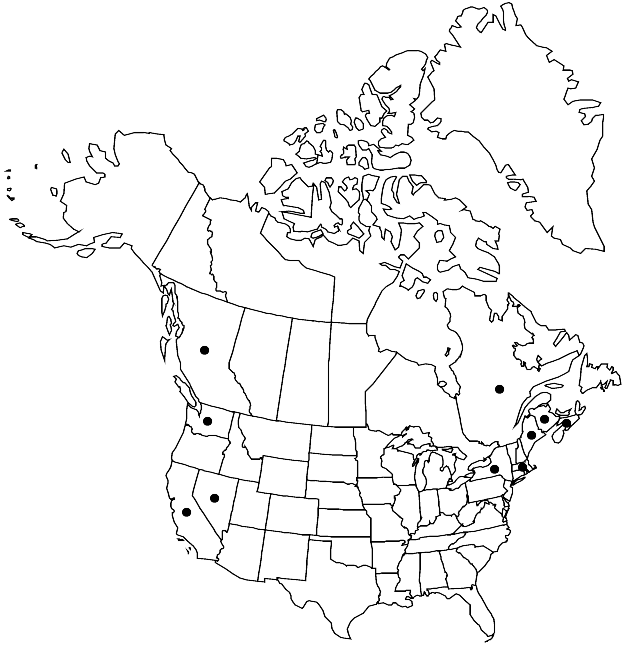Gemmabryum tenuisetum
Phytologia 87: 68. 2005.
Plants small, green or yellow-green, often with reddish tinge. Stems 0.4–1.5(–2) cm; rhizoids yellow. Leaves imbricate to loosely set, ovate-lanceolate to narrowly ovate, weakly concave, 0.4–1.5(–2) mm; base not decurrent; margins revolute proximally, serrulate distally, limbidium absent; apex acute to acuminate; costa excurrent to long-excurrent, awn stout; alar cells similar to adjacent juxtacostal cells; proximal laminal cells gradually quadrate to short-rectangular, 1–2:1; medial and distal cells 50–60(–70) × 12–14(–16) µm, 3–4:1. Specialized asexual reproduction by rhizoidal tubers, on long rhizoids in soil, yellow or rarely orange, ± spheric, (100–)120–180(–200) µm, cells 25–40 µm, smooth. Sexual condition dioicous or rarely synoicous. Capsule inclined or nutant, 2–3(–4) mm.
Phenology: Capsules mature Apr–Jun (spring–summer).
Habitat: Damp to drying acidic soil
Elevation: low to moderate elevations (0-600 m)
Distribution

B.C., N.B., N.S., Que., Calif., Maine, Mass., Nev., N.Y., Wash., Eurasia, Atlantic Islands (Tenerife), Australia.
Discussion
Gemmabryum tenuisetum is characterized by relatively large, yellow tubers with red cell walls and yellow rhizoids. In the flora area, this species is possibly introduced.
Selected References
None.